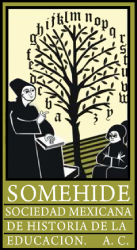Early 20th Century American Schooling, Education Sciences and Making Social Exclusion
DOI:
https://doi.org/10.29351/mcyu.v4i5.569Palavras-chave:
Progressive education, education sciences, reform, social inclusion and exclusionResumo
Schooling embodies salvation themes of North American and European modernity. The salvation themes are mutations of Enlightenments’ project of emancipation through the use of reason and rationality in achieving a universal progress for humanity. The school was produced the modes of life in which the cosmopolitan liberty and freedom could be produced. The emancipatory project entailed cultural theses about the child and society that entailed ironies and paradoxes of modernity in at least two different layers. First, while the notions of cosmopolitanism were to transcend the local and provincial, it was linked to the formation of the modern state that was dependent on for its existence. Second, the hopes of cosmopolitan freedom embodied fears about dangers and dangerous the people who did not embody the qualities and characteristics of the new citizen. This discussion explores the manner in which hopes and fears are embedded in the practices of the pedagogical sciences at the turn of 20th Century concerned with planning in which the child and the family were and should be. The practices of sciences embodied a comparative style of reason through which the hope for inclusion established principles that divided and differentiated particular qualities and people so as exclude in the inclusionary gestures.
Downloads
Publicado
Como Citar
Edição
Seção
Licença
Copyright (c) 2008 Thomas S. Popkewitz

Este trabalho está licenciado sob uma licença Creative Commons Attribution-NonCommercial 4.0 International License.







